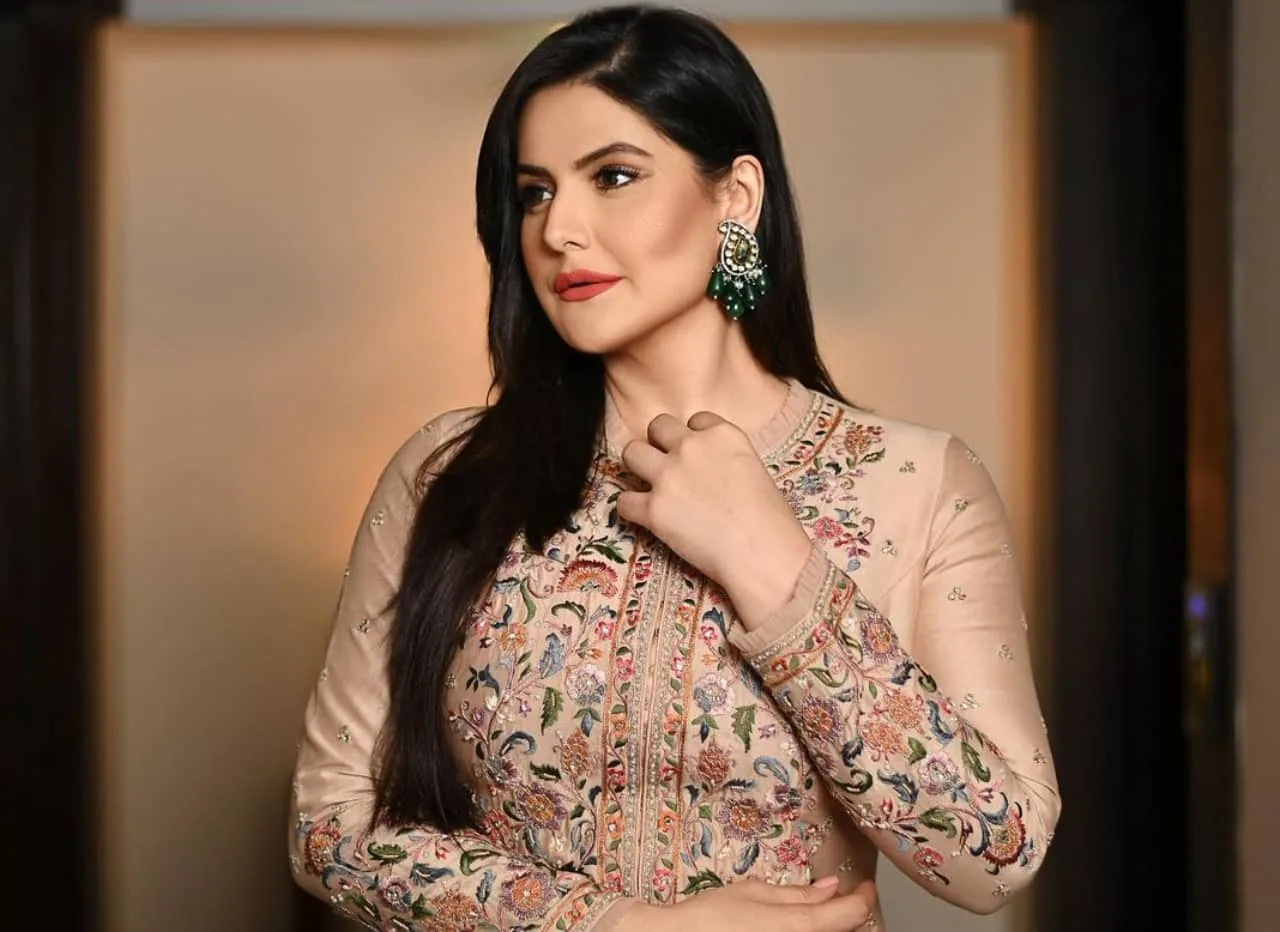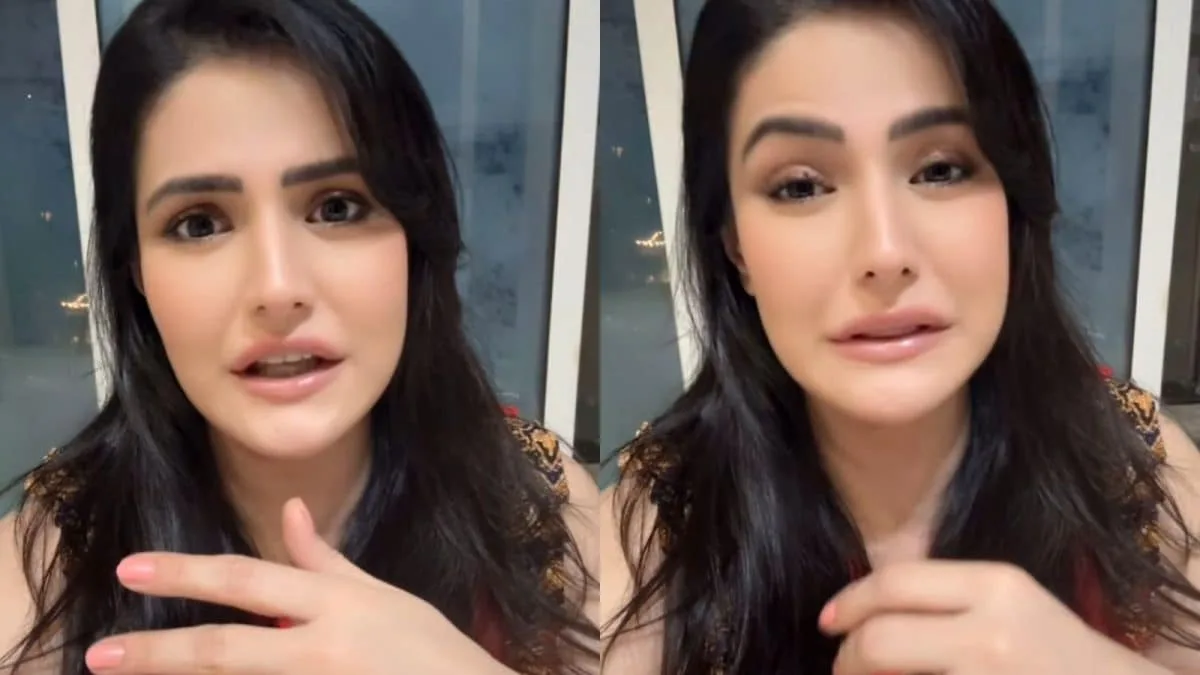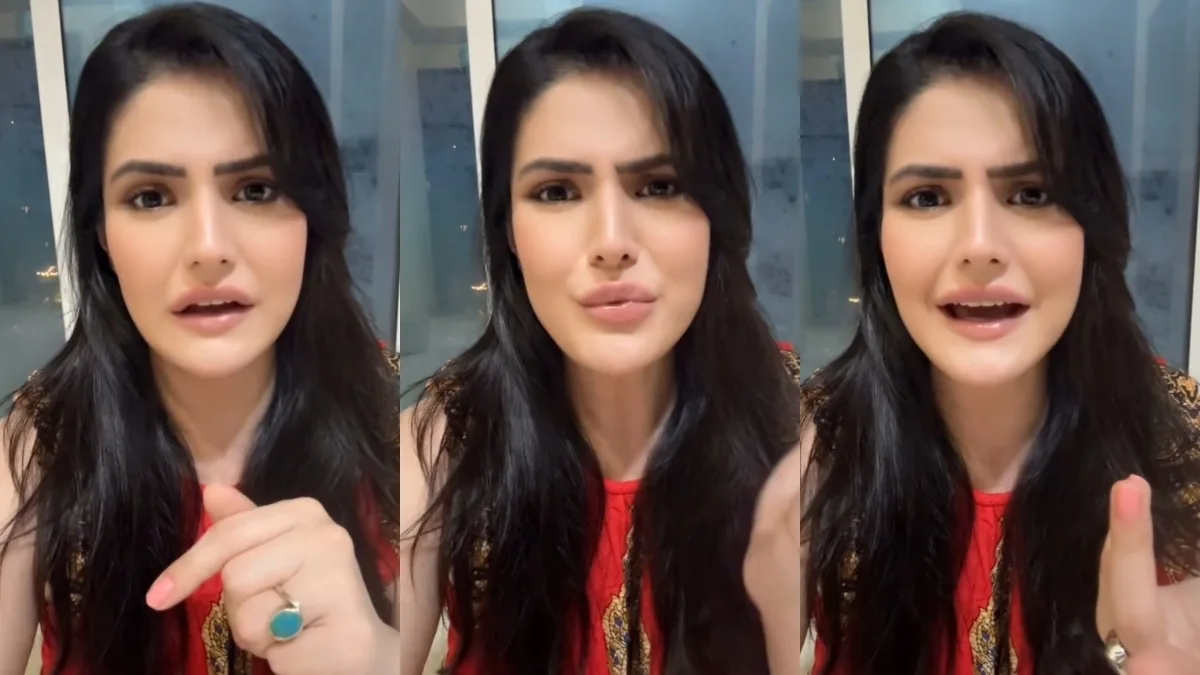Bollywood actress Zareen Khan, who made her debut with superstar Salman Khan, has delivered a powerful and visibly frustrated ultimatum to the growing legions of anonymous users flooding her social media posts with vile, vulgar, and unsolicited comments. Taking to Instagram, the actress did more than just call out the abuse; she highlighted a disturbing new trend of online toxicity and sexual harassment, demanding that the digital community finally address the widespread problem of “filthy” remarks that are polluting the feeds of female public figures.
The actress shared a video message on Tuesday, October 14, where her usual calm demeanor was replaced with palpable distress and confusion over the constant stream of inappropriate remarks. She directly addressed her followers, asking a question that perfectly captured her bewilderment at the rampant online misconduct.

“Hello everyone. Is this happening to you too? The moment I post something, such comments start flooding in,” Zareen stated, describing the immediate, aggressive nature of the online attack. She didn’t mince words in detailing the explicit content she is forced to see daily, citing a litany of obscene and degrading phrases that have become automated responses to her every post.
View this post on Instagram
Zareen specified the precise nature of the digital assault: “People post water and peach emojis, some write ‘service available,’ ‘boys come over,’ or even ‘need a boyfriend, alone at home.’” These remarks, which are a clear form of online sexual solicitation and spam, are not only shocking in their crudeness but are now so systematized that they appear almost immediately under her content. The sheer volume and consistency of this filth left her visibly disturbed, prompting her to make this public stand.

What makes this harassment particularly insidious, Zareen explained, is that the nature of the vulgar comments bears no relation to the content she shares. The abuse is universal, infecting every corner of her digital presence.

“It doesn’t matter what I share; people find a way to post disgusting remarks,” she lamented. Whether she posts a cheerful update on her life, a reflective thought, a promotional piece for her work, or, most shockingly, a message of condolence, the wave of inappropriate sexual spam remains the same. “Some comments are so filthy, it’s shocking,” she reiterated, making it clear that the nature of the remarks goes beyond mere trolling and enters the realm of targeted digital abuse.
She encapsulated her confusion and frustration in a simple yet powerful caption accompanying the video: “Yeh kya chakkar hai… Koi sumjhaao please. Aur kya aap logo ke saath bhi yeh ho raha hai? Let me know in comments. (What is this about, please someone explain me. And is this happening to you too?)”
Zareen Khan’s public appeal immediately resonated with her audience, sparking a major conversation about the toxic underbelly of social media—a space that, for many women, has become less about connection and more about a constant battle against unsolicited harassment. The comment section beneath her video quickly filled with messages of empathy and shared experience. Many users confirmed they face similar, degrading abuse, with one follower writing, “People have lost all sense of decency. They write anything just for attention.” Others urged her to ignore the trolls, calling this kind of online abuse a sadly normalized aspect of the digital age.

However, the actress’s decisive move to actively call out the behavior is a significant step, moving the discourse beyond simply “ignoring the trolls” and placing the onus back on the platform owners and the abusers themselves.
Zareen Khan, who first rose to prominence opposite Salman Khan in the 2010 film Veer, has established a solid career in the industry, starring in films like Housefull 2, Hate Story 3, 1921, and Aksar 2. Her status as a public figure gives her a megaphone, and by choosing to use it to highlight this pervasive issue, she has drawn necessary attention to the digital toxicity that disproportionately targets women. Her query—”Is this happening to you too?”—has transformed a personal complaint into a crucial community-wide plea for accountability and decency on the internet, urging users and platforms alike to clean up the increasingly “filthy” virtual environment.



